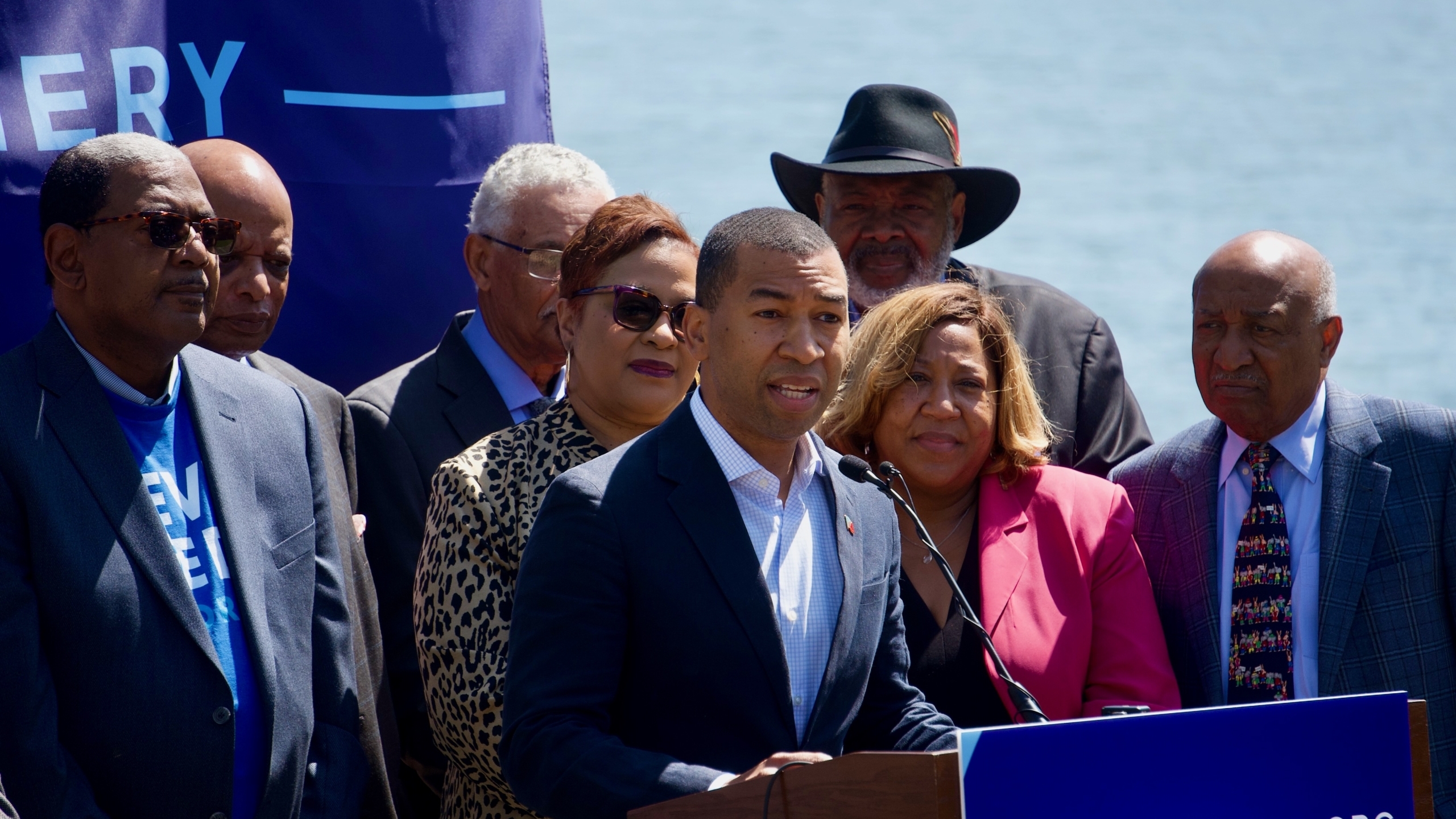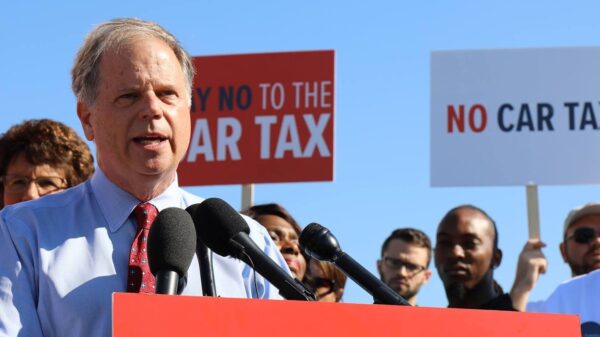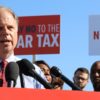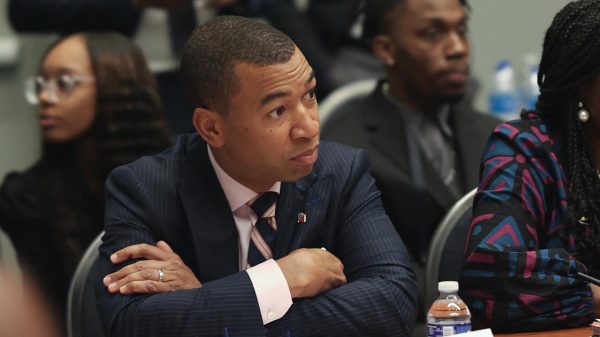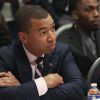|
Getting your Trinity Audio player ready...
|
From almost the moment the U.S. Supreme Court issued its surprise ruling in June, denying the state’s request to use a discriminatory congressional voting map, candidates for the potential new district started lining up support and preparing for a possible run. Last week, when a federal court finally picked the state’s new map — carving out a District 2 more favorable to a Democratic candidate — rumors of candidates and frontrunners began in earnest.
It’s a race on the Democratic side that could be more wide open than anyone imagined.
Over the last few days, APR has spoken with nearly a dozen political consultants, potential candidates, and fundraisers to get a clear picture of where the race stands at this moment. With a month to go before the qualifying deadline, they aim to discern who might be viable candidates. APR has granted anonymity to those who spoke with us to allow them to speak candidly about the race and provide a more honest assessment of the candidates.
One of the most surprising revelations from those conversations was that the perceived frontrunner might not run at all.
Last week, political columnist Steve Flowers wrote that the District 2 race was Montgomery Mayor Steven Reed’s to lose. That summed up the general thoughts of most politicos over the last few months. Reed is popular with the right people, has the ability to raise funds, and controls a powerful political machine, thanks to the decades of work by his father, Alabama Democratic Conference Chairman Joe Reed. Most assumed it was a logical next step for a young, charismatic, ascending politician like Steven Reed.
Maybe Steven Reed disagrees. Two sources told APR that the mayor is currently undecided on running and is considering backing another candidate instead. The sources said Reed has actually discussed potential candidates with a handful of people. They stressed that Reed hasn’t made a final decision, but the assumptions that he’s been pining for a seat in Congress and planning to leave Montgomery are off-base.
If that is indeed the case, the race for the seat on the Democratic side becomes a wide-open affair that will likely go to the candidate who can raise the most money and has the most connections to voters in the district.
In total, those who spoke with APR mentioned eight potential candidates, including Reed: Current House Minority Leader Anthony Daniels, state Reps. Juandalynn Givan and Napoleon Bracy, state Sens. Merika Coleman, Kirk Hatcher and Vivian Figures, and current Alabama State University President and former state Sen. Quinton Ross.
“To me, the most viable candidate is Daniels and the most interesting one is Ross,” said one consultant who has worked on Democratic campaigns for several years. “Both have deep ties to the area and both can raise money quickly—albeit coming from different angles. They’re both well-liked among the business community and they’ve had great success in their current roles.”
Daniels, who currently represents House District 53 in Huntsville, grew up in Bullock County and still maintains deep ties to the area through family. He’s also one of the best, if not the best, fundraisers currently working within the Alabama Democratic Party.
Daniels has an extensive web of national contacts and well-connected national Democrats who can help him raise money in a matter of minutes. He’s also worked behind the scenes in the state for years to help other Democrats fundraise and operate successful campaigns, leaving him with many favor-owing friends.
In addition, Daniels is extremely popular among the Alabama business community. He’s a favorite of the Business Council of Alabama and is routinely called upon to serve on bipartisan legislative committees tasked with economic development issues.
However, a source close to Daniels said he seriously doubted that he would enter the race if Reed decided to run.
That doesn’t appear to be an issue for any of the other candidates, all of whom APR’s sources say have a variety of positive and negative attributes associated with their potential run for the seat.
For example, Coleman, a longtime state representative and well-respected attorney from Birmingham, is considered a very viable candidate who is exceptional at taking on policy issues, said one consultant. But questions persist about her “ability to raise funds on the level required for a congressional race,” and her lack of ties to the area.
The consultant said that similar questions will nag Givan, as will her lack of support from the business community. However, she would likely win votes during debates.
Both Bracy and Figures have ties to the district, given their current districts in the Alabama House and Senate, respectively. But two consultants who spoke with APR said that because such a small portion of Mobile is included in the new District 2, it could impact just how much influence their current positions could have on a congressional run.
Bracy and Figures have significant business-community ties and long track records of standing up for civil rights issues, which should win votes throughout the new district.
In the meantime, Hatcher has proven himself to be a capable politician in just two years in public office, and the man doesn’t lose races. If he also has the backing of the Reed machine in the Montgomery area that might prove decisive. Likely, he, like Daniels, wouldn’t run if Reed declared in the race. Consultants who spoke with APR said they were mostly taking a wait-and-see approach with Hatcher because, as one put it, “there’s just too much unknown about him and how he’d handle a congressional race.”
Ross, meanwhile, is a whole different potential candidate. Like Daniels, Ross is a former school teacher with deep ties to almost the entire district. He’s well-liked and had a very successful history of fundraising and working with the business community while in office.
Those relationships have continued in his position as president at ASU, and his success in leading the university out of a terrible financial situation and into one of the longest periods of stability and growth in recent history will bode well. In today’s political climate, it’s unclear whether Ross’s absence from state politics would be a plus or minus, although the consultants mostly leaned towards the latter. “There are certain connections that you don’t make when you’re on the outside that would help you,” one consultant said.
Still, most found a potential Ross campaign to be very intriguing. Even if the ASU president has given no indication that he’s seriously considering a run. In fact, of the nearly dozen people who spoke with APR, no one was quite sure where the rumors of Ross’s interest came from or when they started.
“But if he finds out everyone thinks he might have a shot, I’ll bet he takes a look,” one consultant joked. “Why not? Everyone else is looking.”
While the race appears to lean heavily Democratic, it’s unwise to think Republicans will not mount a forceful counterattack to keep control of the district.
ALGOP Chair John Wahl and national Republican interests have vowed to hold the seat at all costs, setting up what could be the most expensive congressional race in Alabama history.
For now, all eyes are on Reed, as his decision will likely prove determinative of future Democratic candidates.








































